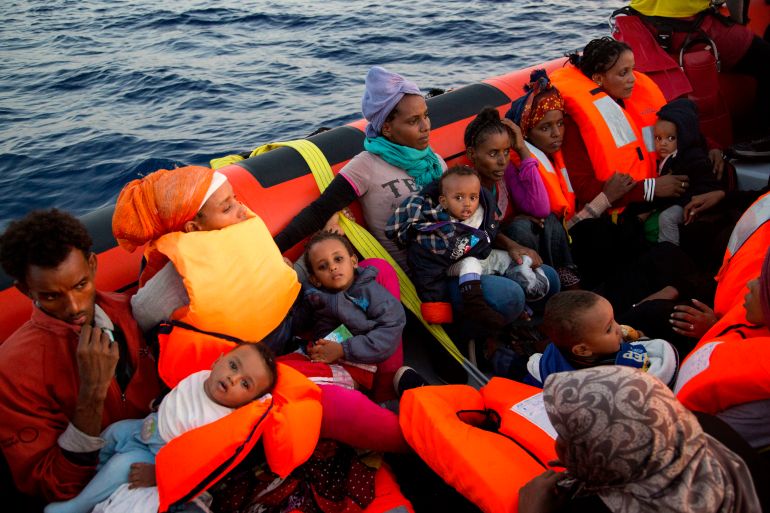EU members sign deal to overhaul asylum procedures
The accord will change how asylum seekers are processed at the bloc’s borders and how they are relocated across Europe.

European Union ministers have agreed on a deal to overhaul the bloc’s asylum procedures, which has eluded the bloc for nearly 10 years, after 12 hours of negotiations to obtain the go-ahead from front-line members Italy and Greece.
Home affairs ministers from the 27-member bloc reached an agreement on Thursday, which aims to end years of division dating back to 2015 when more than a million people, most of whom were fleeing war in Syria, reached the EU.
Keep reading
list of 3 items‘It doesn’t work’: Migrants struggle with US immigration app
Sunak under pressure as net migration to UK hits record 606,000
“This is a great, great achievement, showing that it’s possible to work together on migration. We are so much stronger when we work together,” the EU’s home affairs commissioner, Ylva Johansson, said.
The new asylum and migration management regulation (AMMR) is set to replace the current Dublin regulation and change how asylum seekers are processed at the EU’s borders and how they are relocated across Europe.
The Dublin regulation, an agreement originally signed in 1990 and revised three times, set out rules determining which member state was responsible for the examination of an asylum application.
Brussels-based news outlet Politico EU reported that a coalition of about 10 states led by Italy had blocked the agreement until late on Thursday, preventing the bloc from going ahead with the reform without the consent of a country receiving some of the highest numbers of asylum seekers in the EU.
Last-minute changes, including a cut in the number of people each state would be responsible for and laxer rules to send people back to countries outside of the EU, paved the way for the deal to be finalised ahead of a 2024 EU election.
New rules
According to the newly agreed terms, each country would be responsible for a set number of people but would not necessarily have to take them in.
Countries unwilling to receive irregular migrants and refugees would be able to help their hosting peers through equipment, personnel or cash – about 20,000 euros ($21,500) per person.
Italy, Greece and Malta had initially issued demands for mandatory relocation of migrants from front-line countries.
The reform also introduces a new expedited border procedure for those deemed unlikely to obtain asylum to prevent them from remaining inside the bloc for years.
Poland and Hungary opposed the deal, saying the bloc’s national leaders should return to the matter when they meet later in June, but were outvoted by the majority.
‘Unacceptable’
Hungarian government spokesman Zoltan Kovacs on Friday quoted Prime Minister Viktor Orban as saying the agreement was “unacceptable”.
“Brussels is abusing its power. They want to relocate migrants to Hungary with force. This is unacceptable. They want to forcefully turn Hungary into a migrant country,” Kovacs wrote on Twitter.
Hosting immigrants has become an increasingly divisive issue in the bloc since 2015.
Countries on the EU’s southern edge have long demanded more help to cope with the numbers of people arriving on their shores.
Richer countries, including Germany and Sweden, have baulked at how many asylum seekers head to their territory.
Eastern EU countries such as Poland and Hungary have refused to take in anyone from the mainly Muslim Middle East and North Africa while right-wing and populist parties across the bloc have fuelled the debate with anti-immigration rhetoric.
Unable to agree how to share the responsibility, EU countries mostly focused on bringing down the number of arrivals with UN data showing fewer than 160,000 people made it across the sea last year to the bloc of half a billion people.
Nearly 2,500 people died or went missing in the dangerous crossing over the same period.